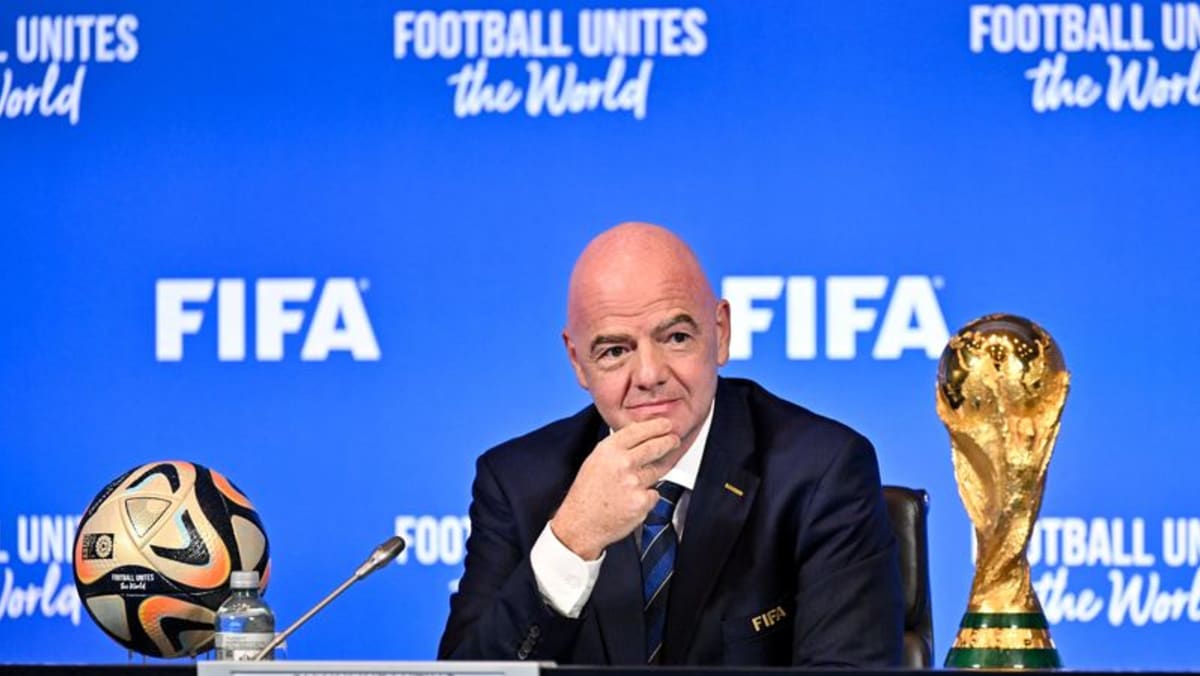Holding the 2030 World Cup in six countries could cause logistical headaches but a tournament on three continents will be viewed as a boon by sponsors and advertisers seeking to expand their brands globally, sports marketing experts have said.
FIFA allocated the 2030 World Cup to Spain, Portugal and Morocco last week but also said Uruguay, Argentina and Paraguay would host three matches to mark the tournament’s centenary.
“It’s going to be a mess for the players and for anyone who wants to attend games,” Bob Dorfman, a sports marketing expert and creative director at Pinnacle Advertising, told Reuters.
“But for advertisers, it may be an opportunity because they now have three continents in which they can build their market. Most of the sponsors are global brands, so they’re looking to build markets around the world.
“It’s also great for newer advertisers, who may be a little more regional and looking to expand. South American companies may just want to focus on those three games in their region, but they may also want to build a brand in North Africa or Europe.”
Victor Matheson, sports economist at College of the Holy Cross in Massachusetts, said the 2030 World Cup proposal was “extremely well done” on FIFA’s part.
“It’s hard to find anything to criticise about this particular event,” Matheson said.
“I would suspect the sponsors are definitely looking forward to this a lot more than they were looking forward to Qatar.”
The decision to award Qatar hosting rights for the 2022 World Cup was marred by controversy, including allegations of corruption and human rights violations.
BEER BACK ON TAP
The World Cup in Qatar also had to contend with strict controls on alcohol. Two days before the tournament kicked off, Budweiser, the official beer of the World Cup, had taps at stadiums turned off by Qatari officials.
“Budweiser were not at all happy with a world where they couldn’t actually sell their primary product in the host country, and that being a last minute decision,” he said, adding that Spain, Portugal and Morocco are “super safe choices”.
“I think all these sponsors have a lot more history and a lot more comfort with Spain and Portugal where they don’t need to do a whole lot to promote it.
“All major sponsors are much happier with countries that they’re more comfortable associating with … Spain and Portugal have very good reputations. Morocco is a little bit more unknown, but it certainly doesn’t have a negative reputation.”
Like Qatar, Morocco is an Arab nation with a majority Muslim population.
But it is considered one of the most liberal countries in North Africa and has often hosted international cinema and music festivals as well as sports events.
Morocco were named hosts of the 2025 African Cup of Nations last month and they also want to host the 2030 final in Casablanca.
“MORE LENIENT”
Morocco’s tourism revenue is expected to reach a record 115 billion dirhams (US$11.24 billion) in 2023, exceeding pre COVID-19 levels, according to central bank expectations.
“Morocco is more lenient when it comes to accommodating Western lifestyles than Qatar,” said Vijay Setlur, a sports marketing expert with Schulich School of Business.
“I don’t expect the restrictions to be as stringent in Morocco.
“One of the reasons Qatar received criticism was the conditions of workers who built stadiums, but in Morocco, there won’t be stadium-building projects on the same scale. Morocco will probably be refurbishing existing stadiums.”
The decision to host the tournament across three continents also attracted criticism from climate experts, but Dorfman said the scale of the World Cup would take precedence for sponsors over political or climate issues.
“Like it or not, that’s what ends up happening and everyone in the end remembers how great Lionel Messi was and how Argentina won the World Cup,” he said.


